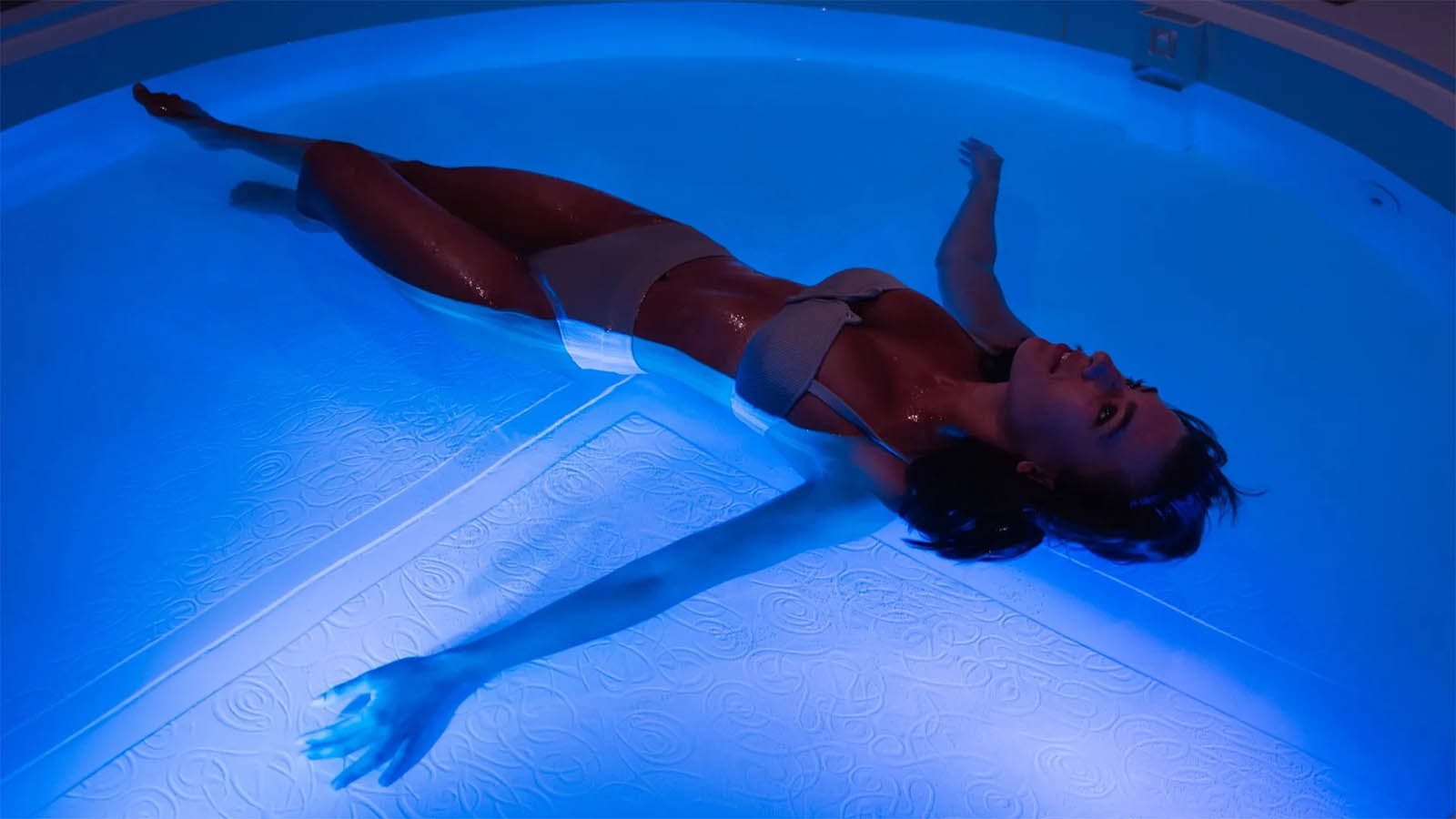
Floating's popularity is quickly growing due to the outstanding benefits on mind and body - and the science is catching up to what floating aficionados already know.
Dr. Justin Feinstein, PhD. is a clinical neuropsychologist who has spent his career exploring the intimate connection between the body and brain. He is at the forefront of floatation research, discovering new treatments that naturally alleviate fear and anxiety without the use of drugs. Dr. Feinstein and his team are seeing that floating tamps down anxiety in the brain in a way that rivals prescription drugs and meditation.
Their research has shown that Floatation-REST enhances one's awareness for present moment cardiorespiratory senstations, a state that is sought after in the practice of mindful meditation. The float environment has been found to spontaneously induce states of mindfulness, including in anxious patients who often have great difficulty meditating. Moreover, the float environment appears to weaken the bond between cardiorespiratory sensations and anxiety, greatly reducing anxiety sensitivity and helping anxious patients (including those with PTSD) form a new association in their brain, one that links the experience of cardiorespiratory sensations with a state of relaxation instead of anxiety.
Everything we know about floating shows it to be a potent antidote to stress and burnout.
A review of 27 studies from 25 publications found Floatation Sensory REST therapy to be an effective tool for lowering stress, increasing one's sense of well being and improving daily performance. The body of research analyzed in this study found significant evidence of positive stress-related physical changes, including lower levels of cortisol and lower blood pressure.
This study from 2014 found significant stress reductions accompanied by a boost to energy and optimism. The participants talked at length about the dramatic relief from physical pain, never-before experienced degree of relaxation and relief from tension and stress that floating provided them.
This 2010 study found that 10 weeks of floatation therapy in combination with psychotherapity led to improvements in quality of life and psychological well being. The participants found relief from burnout that allowed them to continue working full time.
Another study investigated the long-term effects of floatation and found that after a series of 12 float sessions, participants experienced major improvements in stress and the symptoms of burnout. Researchers found these benefits were still in place 4 months after treatment ended.
Pain relief is one of the most common reasons people make a practice of floating. Floating provides relief for many types of pain including joint and muscle pain, musculoskeletal injuries, headaches, arthritis, fibromyalgia, multiple sclerosis and other chronic pain conditions. These claims are supported by a large and growing body of scientific evidence.
The participants with neck and back aches in this 2001 study reported sigificantly reduced pain intensity after floating as well as an increase in optimism and sleep quality.
Numerous case studies conducted by Dr. David Berv at The Float Zone have found significant reduction in chronic pain, including pain from headaches and multiple sclerosis.
This short documentary explores how floatation therapy benefits chronic fibromyalgia pain.
Float Euphoria exists because our founder and owner, Ryan, found it to be a cure for his insomnia. In his words:
"One 90 minute float. That's all it took. I struggled with insomnia for decades. Falling asleep was incredibly difficult because my mind just would not stop working. I would lay awake in bed for hours most nights trying to fall asleep. This was my reality for most of my life. After hearing about floating from a friend, I drove 2 hours to the nearest float center and gave it a try. I slept like a baby that night and woke up feeling refreshed and rejuvenated. The benefits persisted for days. Night after night of blissful, amazing sleep. I couldn't believe it - this was a total game changer. One month later I ordered two Dreampods and bought the building that would become Float Euphoria."
Ryan's experience is not unique. This study from 1989 found improvements in symptoms of insomnia. After a series of four 2-hour floatation sessions over a 2-week period, participatns were able to fall asleep more quickly. These improvements lasted for up to 12 weeks after the last session.
This 2014 study found significant improvements in both the amount and quality of sleep in people who underwent a series of float sessions.
A 2017 study found some information about how float therapy alters brain activity in ways that mimic some aspects of sleep itself. Researchers used an EEG to measure brainwaves during float sessions, finding that floating leads to a shift into a deeply relaxed state of consciousness. Brain activity and consciousness was similar to that of Stage 1 sleep.
The Human Performance Laboratory at Sweden's Karlstad University spent nearly three decades studying the effects of floating, finding that floating improves sleep, increases energy by increasing production of the hormone prolactin, increases optimism and mindfulness, decreases anxiety and stress through the reduction in the stress hormone cortisol, decreases depression and pain.